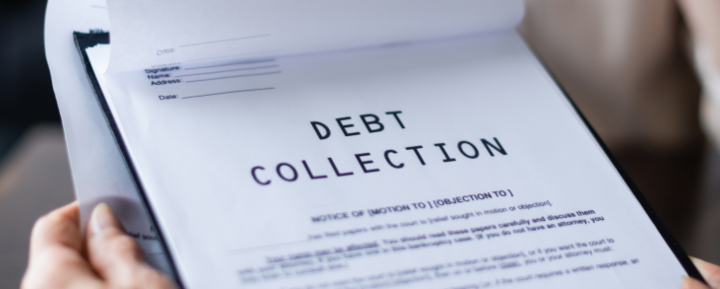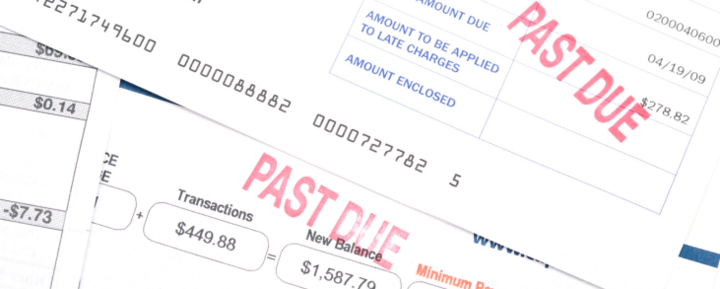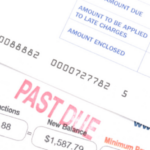If you’ve been sued over an unpaid debt, you may be feeling overwhelmed or even scared. Fortunately, there are steps you can take to protect yourself and assert your rights as a consumer.
Regardless of the circumstances, here’s how to respond to a debt collection lawsuit, including some of the options you can pursue to defend yourself.
Initial Steps to Take When Facing a Debt Collection Lawsuit
If you’ve been sued over unpaid debt, you’ll receive a summons, either by mail or in person, detailing the plaintiff’s complaint and outlining the deadline for your answer. Taking the right steps early can help you protect your rights and build a strong response.
- Review the lawsuit documents for accuracy: Carefully examine the court summons and complaint to verify that all details of the debt are correct. Check your name, account information, and the debt amount claimed. Any errors could be grounds for dismissal or a stronger defense.
- Verify the creditor’s claim and debt details: Confirm that the creditor suing you has the legal right to collect the debt. Sometimes, debts are sold to third-party collectors, and they may not have sufficient documentation to prove their claim. Request verification of the debt, including statements and original agreements, to ensure the lawsuit is legitimate.
- Understand the statute of limitations and your rights: Each state has a statute of limitations that restricts how long a creditor can legally sue you for an unpaid debt. If the debt is time-barred, you may be able to get the case dismissed. Additionally, understanding your legal rights, including protections under the Fair Debt Collection Practices Act (FDCPA), may help you negotiate an advantageous deal.
Preparing Your Response to the Lawsuit
As previously mentioned, the summons will include a deadline by which you need to respond to the lawsuit — usually 20 to 30 days after you receive the summons. Responding by the deadline can help prevent a default judgment, which automatically grants the creditor the right to collect the debt using their desired methods.
In other words, ignoring the lawsuit may allow the collector to garnish your wages, place a levy on your bank account, or put a lien on your property. Filing a timely response preserves your rights and allows you to challenge the claim.
Options for Responding to a Debt Collection Lawsuit
Depending on your situation, there may be a few different ways you can respond to the debt collector’s complaint.
Filing an Answer: Admitting or Denying Allegations
Formally responding to the lawsuit to admit or deny allegations not only prevents a default judgment but also allows you to defend yourself.
Even if you agree to some or all of the debt collection agency’s claims, you may be able to show that you can’t afford to pay it, or you may want to dispute their preferred collection method.
Motion to Dismiss – When and How to Use It
A motion to dismiss asks the court to throw out the lawsuit based on legal deficiencies, such as improper service, expired statute of limitations, or lack of standing by the creditor. If you succeed, the judge will dismiss the case, relieving you of the obligation to further respond or defend yourself in court.
Settling the Debt – Negotiating a Payment Plan
If you acknowledge that you owe the debt but can’t pay the full amount, you may be able to negotiate a settlement or a structured payment plan instead. Creditors may agree to reduced balances or modified terms.
If you proceed with this option, make sure the agreement is in writing and includes a release of further claims to avoid future collection actions or legal disputes over the debt.
Filing for Bankruptcy – When It May Be the Best Option
While not ideal, filing for bankruptcy may be necessary if you have multiple unmanageable debts. As soon as you file, the court will grant an automatic stay, halting collection efforts and lawsuits. If you move forward, bankruptcy may provide you with financial relief, not to mention a chance to regain control of your debt situation.
How to Draft and File Your Answer
As you consider how to respond to a debt lawsuit, it can help to have an experienced debt attorney to help. However, if you want to move forward on your own, here are some potential ways to respond.
Admitting or Denying Allegations in the Complaint
When drafting your answer, respond to each allegation by admitting or denying the claim. Denying allegations forces the creditor to prove their claims while admitting them may limit your defense options, so make sure you’re consistent with your answers.
Asserting Defenses Against the Creditor’s Claims
Depending on the details of your situation, you may be able to raise one or more defenses against the creditor’s claims.
Common Defenses in Debt Collection Cases
Example defense options you may be able to pursue include:
- Mistaken identity
- Lack of documentation
- Expired statute of limitations
- Inaccurate debt amounts
Filing Counterclaims If the Creditor Violated the Law
If the creditor engaged in illegal collection practices under the FDCPA, you may file a countersuit against the collection agency. Depending on the situation, this may result in case dismissal, an opportunity for a settlement, or financial compensation for harassment, misrepresentation, or other violations.
Seeking Legal Assistance and Resources
If you’re planning to defend yourself, the court’s website may have some resources and templates to help you. However, it can be a good idea to consult with an attorney to see if professional representation is better for you.
Hiring an Attorney – When It’s Worth the Investment
Seeking legal help for a debt lawsuit can be a smart investment in certain situations, especially when the potential consequences are significant. Here are some key scenarios where legal representation may be worth the cost:
- The debt is significant: If the amount in dispute is substantial, an experienced and local debt relief attorney can help protect your financial interests, negotiate settlements, or identify defenses that could reduce or eliminate the debt.
- You dispute the debt: If you believe the debt doesn’t belong to you, the details are incorrect, or it’s already been paid, an attorney can help you navigate the process of challenging the creditor’s claims more effectively.
- The collection agency lacks proof: Sometimes, debt collectors fail to provide the necessary documentation to prove their case. A lawyer can spot weaknesses in their evidence and help turn the lawsuit in your favor.
- You suspect that your rights have been violated – If the creditor has violated the FDCPA through harassment, false claims, or in other ways, an attorney can help you identify such misconduct and help you file a counterclaim and seek damages.
- You’re overwhelmed: The legal process can be complex, and missing deadlines or filing inaccurate or incomplete paperwork could hurt your case. An experienced attorney can take over communications with the collector and the court and also make sure that all legal documents are correctly prepared and filed.
Step-by-Step Guide to Responding to a Debt Lawsuit
Step 1: Answer the Complaint Accurately and Promptly
Carefully review the lawsuit documents and respond before the court deadline. Address each allegation individually or file a motion to dismiss the lawsuit based on statute of limitations or other reasons.
Step 2: Raise Your Defenses and Protect Your Rights
If you’re disputing the debt, potential defenses may include mistaken identity, expired statute of limitations, or lack of documentation. Asserting strong defenses can weaken the creditor’s case, potentially leading to a more favorable settlement or even dismissal.
If you acknowledge that you owe the debt, a potential defense may include an inability to pay the money owed or disputing the creditor’s collection practices.
Step 3: File the Answer With the Court and Follow Up
Once you’re ready to move forward, submit your answer to the court, and don’t forget to include documentation to provide evidence for your claims. Keep copies for your records and verify that the court has received and processed your response. It’s also important to follow up on court dates and deadlines and stay proactive throughout the court case.
The Bottom Line
Dealing with a debt lawsuit can feel overwhelming, but taking the right steps can help put you in control. Ignoring it isn’t an option because doing so could lead to wage garnishment or even losing assets.
Instead, review the lawsuit carefully, respond on time, and assert any defenses you have, and be sure to include documentation to support your claims. The most important thing is to stay proactive.
If you need help, consider consulting an attorney. Tayne Law Group is a New York-based debt relief law firm that has been helping clients find resolutions for their debt for more than 20 years. If you’re being sued by a creditor, contact us today to discuss how we may be able to help you put together a strategy to resolve the situation. Call us at (866) 890-7337 for a free phone consultation with our experienced and helpful staff. You can also fill out our short contact form, and someone from the office will contact you. We never sell or share your information, and all discussions are confidential.








